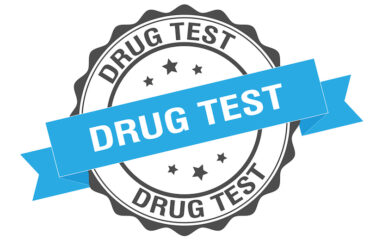Justice Speaks Podcast Episode #51
In this episode of Justice Speaks, JSI President David Wallace sits down with Darrin Grondel, Senior Vice President of Traffic Safety for Responsibility.org, and Brian Swift, spokesperson for the National Alliance to Stop Impaired Driving (NASID). Together, they delve into innovative strategies to combat drugged driving, save lives, and promote safer roads.
Meet the Guests
Darrin Grondel
With a 25-year career in law enforcement, including serving as Captain for the Washington State Patrol and as the state’s Highway Safety Director, Darrin has dedicated his career to traffic safety. Now serving as Senior VP at Responsibility.org and Director of NASID, Darrin leads efforts to reduce impaired driving through education, research, and advocacy.
Brian Swift
Starting off, Mr. Swift notes that he is a “yooper,” a person who lived in the Upper Peninsula of Michigan. In the episode, Brian shares his personal connection to the issue of impaired driving after losing his parents to a crash caused by a drugged driver. His advocacy began in Michigan, where he helped pass the first law allowing oral fluid testing for drugs during impaired driving investigations. Now a national advocate, Brian is committed to spreading awareness and saving lives.
About Responsibility.org & NASID
Responsibility.org was established 30 years ago by leading alcohol distillers to tackle underage drinking, impaired driving, and alcohol misuse. Today, it also addresses the challenges posed by marijuana legalization and drugged driving. Educational programs like Ask, Listen, Learn help parents discuss substance use with their children, while other initiatives focus on supporting law enforcement and promoting safe behavior.
NASID (National Alliance to Stop Impaired Driving) works to combat multi-substance impaired driving**. One of its key projects involves promoting oral fluid testing, a simple tool that helps law enforcement detect drugs like marijuana in impaired drivers. This game-changing technology, which complements traditional alcohol testing, is expanding nationwide thanks to partnerships with Responsibility.org and advocates like Brian Swift.
The Growing Challenge of Drugged Driving
While alcohol impairment once dominated impaired driving discussions, drugged driving is now an equally critical concern. Drivers under the influence of multiple substances, such as alcohol and marijuana, pose unique challenges. Public perception often underestimates the dangers of drugged driving compared to alcohol, despite its significant role in fatal crashes.
Brian’s Advocacy and the Oral Fluid Testing Revolution
Brian shares the heartbreaking story of losing his parents to a drugged driver. Determined to prevent similar tragedies, he spearheaded efforts to implement oral fluid testing in Michigan. This simple test gives law enforcement a quick positive or negative response for drugs like cannabis, providing an essential tool in impaired driving investigations.
Today, NASID and Responsibility.org are working to expand oral fluid testing nationwide, emphasizing its potential to detect and prevent impaired drivers before they cause harm.
Key Takeaways from this Episode
- Drugged driving often involves multiple substances, complicating enforcement and education.
- Oral fluid testing offers a promising solution, helping officers identify drug-impaired drivers quickly and effectively.
- NASID partners with national organizations like MADD and SADD, as well as law enforcement, to promote safer roads.
- Public education campaigns are essential to combat misconceptions about drugged driving.
The Road Ahead
As impaired driving evolves, so must our responses. The U.S. Department of Transportation’s approval of oral fluid testing for commercial drivers marks a significant step forward. NASID and Responsibility.org are committed to advancing legislation, training, and public awareness to address the growing issue of drugged driving.
“The train has left the station,” Brian notes. “It’s time for states to step up with a plan to address this issue and save lives.”
Conclusion
Drugged driving is a non-partisan issue that impacts all communities. By embracing technology, supporting law enforcement, and educating the public, we can make significant strides in reducing impaired driving and saving lives.
We thank Darrin Grondel and Brian Swift for sharing their insights on this important episode of Justice Speaks.
To learn more about NASID, click HERE. For Responsibility.or, click HERE.
Additional Resource
You can also watch this interview by going to the Justice Speakers Institutes’ YouTube Channel or by clicking HERE.
Get more articles like this
in your inbox
Subscribe to our mailing list and get the latest information and updates to your email inbox.
Thank you for subscribing.
Something went wrong.











